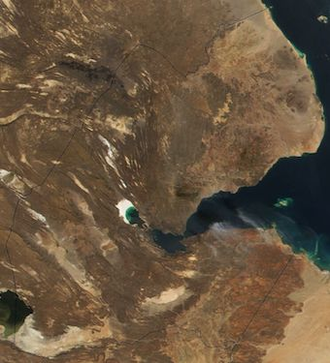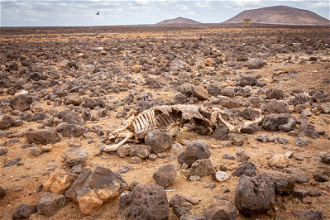Will agreement between Ethiopia and Somaliland cause a geopolitical earthquake?

Satellite Image of Djibouti. NASA/GSFC, Public domain, Wikimedia Commons
Source: Fides
Will there be a geopolitical earthquake in the Horn of Africa and the Red Sea? Fides news service asks this question today after the historic agreement signed on January 1st between Ethiopian Prime Minister, Abiy Ahmed Ali, and Somaliland President, Muse Bihi Abdi.
In return for official recognition of the breakaway Somali region, Addis Ababa will be granted access to the sea along a 20 km long coastline for its "naval forces" for a period of 50 years.
After Eritrea's independence, Ethiopia lost access to the sea in 1993, so the Ethiopian navy has practically ceased to exist since then. In order to be able to trade by sea with Eritrea despite the tensions, Ethiopia has concluded an agreement to use the port of Djibouti. Somaliland, the northern region of Somalia, declared independence in 1991 and has not yet been recognized as an independent state by any other country.
The January 1 agreement therefore represents a turning point as Ethiopia, the second most populous country in Africa, whose capital is the headquarters of the African Union, not only recognizes Somaliland but also pledges military support, if only to defend to defend its naval forces as soon as they are newly formed and stationed in a port there.
The renewed Ethiopian naval ambitions became clear in 2018 when it was announced that the navy would be rebuilt with the help of France. Russia also recently agreed to support the government in Addis Ababa in rebuilding its naval forces. Ethiopia's recognition of Somaliland has already sparked a strong reaction from the Somali government in Mogadishu, which denounced a "flagrant violation of its sovereignty and unity" and recalled its ambassador in Addis Ababa. The Shebab Islamists, an al-Qaeda-linked group that has waged a bloody insurgency against the Somali government since 2007, also condemned the deal and Abiy Ahmed's "expansionist agenda."
Somali President Hassan Sheikh Mohamud, meanwhile, has initiated consultations with Qatar and Egypt, two countries that are rivals over the Nile dam with the United Arab Emirates (which supports Ethiopia and already has a civilian and military presence in the port of Berbera in Somaliland) and Ethiopia, respectively. Indeed, the rivalries between the countries of the Horn of Africa are intertwined with those of the Persian Gulf states and with the aspirations of the major powers (from Iran to Turkey, from China to the USA), even in the face of recent attacks by the Houthis shipping in the Red Sea.


















